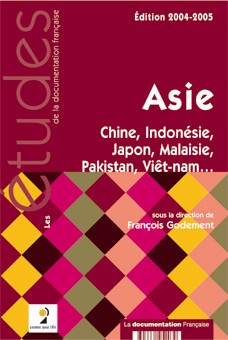Asie : Chine, Indonésie, Japon, Malaisie, Pakistan, Viêt-nam... Edition 2004-2005

In 2004, the importance of East-Asia as a major pole of the contemporary world proves, despite the fragility of its financial systems, to be widely devoid of regional mechanisms. Different developments illustrate this come back to the front stage.
China - The change of generation that took place during the XVIth Congress of the Communist Party, confirmed by the rising power of President Hu Jintao, reflects the leaders' will to include the country in the global economy and to make it one of the growth 'engine'.
Japan - Gouverned by the charismatic J. Koizumi, it seems to take up again with the political efficiency and to take the way to recovery again. Politically rivals but pragmatic, Beijing and Tokyo are moreover induced to cooperate, when the regional integration processes (ASEAN, APEC) are getting stronger.
South-East Asia - At its own pace, it renews its leaders on the occasion of elections that, despite authoritarian stickings and tensings, show the political maturity of the electors. As a testimony, in Indonesia, the election of S. B. Yudhoyono or, in Malaysia, A. Badawi's, that accompanies a certain marginalisation of the Islamists. Ignoring this democratic wind, the Communist Party of Vietnam occupies itself to keep its power undivided while modernising the country at a forced pace.
South Asia - Pakistan does not fail to worry: P. Musharraf's power finds less and less easily a balance between an alliance with the United States, the Army requirements and the Islamists insisting pressure.




